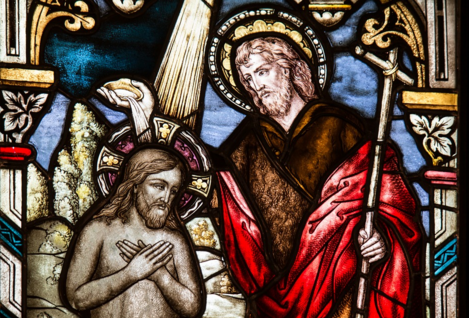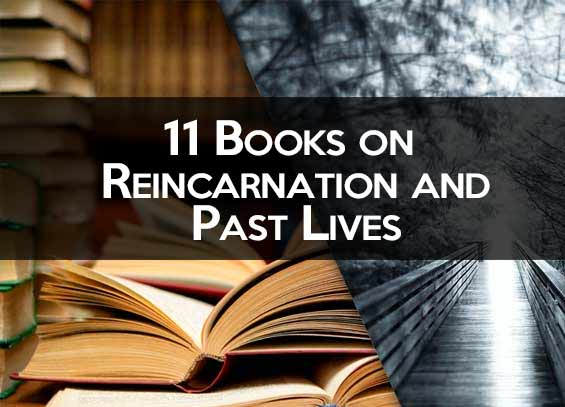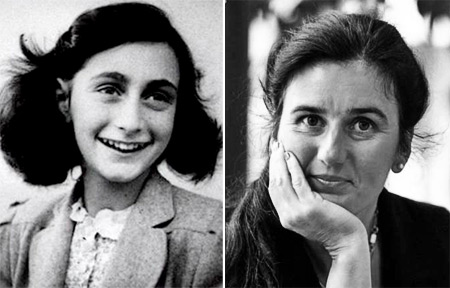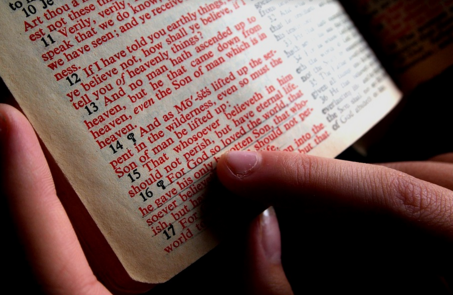Many people ask themselves: Do Christians Believe In Reincarnation? The answer is No, belief in reincarnation is absolutely incompatible with faith in the resurrection since it preaches separation between spirit and matter. Many Christians support it because they do not recognize their own faith, and this has led to much confusion on the subject.
Christianity and Reincarnation
1. Reincarnation is a concept from Eastern spirituality, and states that the spirit should separate from the material body in which it resides.
Christianity and Reincarnation are concepts very far from each other. Let’s define Reincarnation first. Although there are many variations on the belief of reincarnation, we can define it as the “doctrine that the soul of man passes through several bodies until it is released from all ties with matter”. Reincarnation is a belief of Eastern origin, widespread in the environment of the New Age with a few tweaks of Westernization that made it fashionable, even among Christians who have strayed from their faith. This concept has its origins in the idea that souls after death, are reincarnated in another body, and come back to life to pay for the sins they did in the past (Hinduism) or to improve life after life (spiritualism).

The version more spread in the West, thanks to the spiritualist and Gnostic literature is much more seductive, because it neglects the hard and negative side of it (punishment in future lives), to focus on a plan of egocentric self-realization, spiritual maturity, evolution, and accumulation of experiences. And according to many psychologists (S. Grof, T. Dethlefsen, B. Weiss) it can easily explain all the ills of present life as a consequence of problems in previous lives.
No doubt that these reincarnation doctrines want to answer existential problems as the origin of evil, explain all the suffering, the existence of inequalities, give a sense of justice beyond death… but they deny the love of God, God’s forgiveness, Salvation, and doesn’t assume free will, but doom moved by a relentless law where every soul is on their own.
Understandably, if one is Buddhist, or adheres to the beliefs of Hinduism, being consistent with the doctrine itself, should believe in reincarnation. As it should be obvious that a Christian believes in resurrection, not reincarnation.
Read also: What Is Reincarnation?
The problem is that many Christians who do not know in depth their faith have assumed as real a flood of doctrines strange to their faith. These Christians do believe in reincarnation. They have been culturally influenced by the spiritualistic beliefs, theosophical, anthroposophical, esoteric and Gnostic, especially those promoted by the New Age literature. The belief in reincarnation, in its Western version, is also taken up and spread by movements that preach extraterrestrial contact.
So, Is there reincarnation in Christianity?

No. This belief is contrary to Christian doctrine and tradition and totally incompatible with faith in the resurrection attested in the Bible, and the faith in Jesus Christ as Savior. There is no reincarnation in Christianity.
Jewish and Christian faith understand the human being as unique and unrepeatable, they witness the resurrection and reveal that when people die get to meet the Lord, no one is reincarnated in another body, nor any spirit is left wandering the world – or other planets, as spiritualists believe.
For Christians, the human being has a unique identity, body and soul, and no karma, since there is forgiveness of a God who saves. Jesus himself tells the thief on the cross: “Today you will be with me in paradise” (Lk 23,39), so we find here a thief without karma or reincarnation finally reaching heaven.
Belief in the infinite love of a God who saves and forgives does not support the loneliness of being in the hands of a cold and universal law such as cause and effect. Besides, for Christian anthropology, reincarnation trivializes death, the body and its identity, making them mere accidental realities. Under these points of view, we can say that Christianity and Reincarnation are not compatible in any way.
Do Christians believe in reincarnation? What the Bible says

But the Bible is clear for those who believe in the Judeo-Christian revelation:
“Multitudes who sleep in the dust of the earth will awake: some to everlasting life, others to shame and everlasting contempt. Those who are wise will shine like the brightness of the heavens, and those who lead many to righteousness, like the stars for ever and ever.”(Daniel 12.2-3)
“But with his dying breath he cried out to the king, You butcher! You may kill us, but the King of the universe will raise us from the dead and give us eternal life, because we have obeyed his laws.” (2 Maccabees 7,9)
“… If he had not believed that the dead would be raised, it would have been foolish and useless to pray for them…” (2 Maccabees 12:44)
“… But the souls of the righteous are in the hand of God, and no torment will ever touch them. In the eyes of the foolish they seemed to have died, and their departure was thought to be a disaster, and their going from us to be their destruction; but they are at peace.” (Wisdom, from 3.1 to 3)
“It is appointed unto man to die once, and after this the judgment …” (Heb. 9:27)
Christian Resurrection
St. Paul himself says that if Christ was resurrected, we will all be resurrected, and Christian faith itself is based in the resurrection of Christ. (1 Cor 15). And as you read this chapter of the First Letter to the Corinthians, it is clear that our resurrection is like Jesus Christ’s, meaning there is a new and definitive life, not passing through different bodies.
The Catechism of the Catholic Church teaches:
“In death, God calls man to himself. Therefore the Christian can experience a desire for death like St. Paul’s: “My desire is to depart and be with Christ.” (Phil 1:23) …
Death is the end of man’s earthly pilgrimage, of the time of grace and mercy which God offers him to work out his earthly life in God’s plan and to decide his ultimate destiny. When “the single course of our earthly life” is over, there is no return to other earthly lives. It is appointed unto man to die once (Hebrews 9:27). There is no “reincarnation” after death “(CCC 1011-1013).

The Church has always believed that death is immediately followed by the trial, the encounter with God.
“We believe that Christ did truly rise again from the dead, and took again His body, with all things appertaining to the perfections of man’s nature, and ascended into heaven and there sits until He shall return to judge all men at the last day… We believe in the resurrection of the dead since its inception is a core element of the Christian faith … We Christians believe in it “(CCC 989-991).
The Word of God teaches that this is the only decisive earthly life and man’s destiny is decided in this life irrevocably.
Moreover, the belief in reincarnation also denies the need for salvation, since each would save himself on a path of individual improvement of cause and effect. But in the Christian faith we believe that we are saved freely by God, that Jesus Christ bore our sins and gave us his forgiveness and eternal life.
For the Christian faith, any cyclical conception of the world is not valid, because the man has a unique history before God, because God has created him and loved as a unique and unrepeatable.
The glorious manifestation of Christ to the end of time is the end point of the story, no faith to an endless cycle of stories. Neither reincarnation is as old as they say, nor is it in most religions, nor is it scientifically sound, let alone having anything to do with the Bible.
There are many false widespread ideas about the possible compatibility between Christians and reincarnation.
Some say that the Catholic Church erased some quotes from the Bible that spoke of reincarnation, especially at the Council of Nicea. That is false, because never in the Jewish or Christian faith people believed in reincarnation.
Read also: Reincarnation In The Bible: What Does It Say?
Also evoked as an excuse for a Father of the Church, Origen believed in reincarnation. But it is not true, because this great Christian theologian believed that souls pre-existed, not that reincarnated. And the doctrine of pre-existence of souls was also condemned.
Spiritualists also say that reincarnation is the oldest and most universal belief, which is not true, because in the texts of Hinduism it only appears since the sixth century B.C. and not in the Vedas, which are older; nor the ancient Chinese religions (Taoism and Confucianism), or ancient Egyptian religions, although the Book of the Dead has some references to the metempsychosis, but it’s not the same as reincarnation.
Neither the Persians, or African peoples handled this idea. In ancient Greek there are no ideas of reincarnation; it is attributed to Pythagoras, who takes this idea poetically from Plato. But Homer, despite conveying the ideas of his time on the survival of souls, does not have any texts alluding to anything like reincarnation.
Many spiritualists use quotations from the Bible out of context on the return to life of Elijah or John the Baptist, attributing reincarnation, when in fact the biblical text never refers to an idea like that.
Others even say there is scientific evidence for reincarnation through “past life therapy”, as Dr. Brian Weiss, and actually are not only unscientific, but according to several experts these are “a collection of absurdities” written in a very convincing way for the general public. A very widespread current without any scientific basis that works with “regression to past lives” is the transpersonal psychology of Stanislav Grof, who used LSD and holotropic breathing to provoke regressions, obviously the results were all kinds of hallucinations. Dr. Kurt Koch, did research in over 103 cases for 15 years and found serious psychological disturbances and damage of those who underwent these “trips” to previous lives
This concludes our article on Christian Reincarnation and hopefully answers the question Do Christians believe in Reincarnation? Keep reading this website to learn more about reincarnation and life after death.






